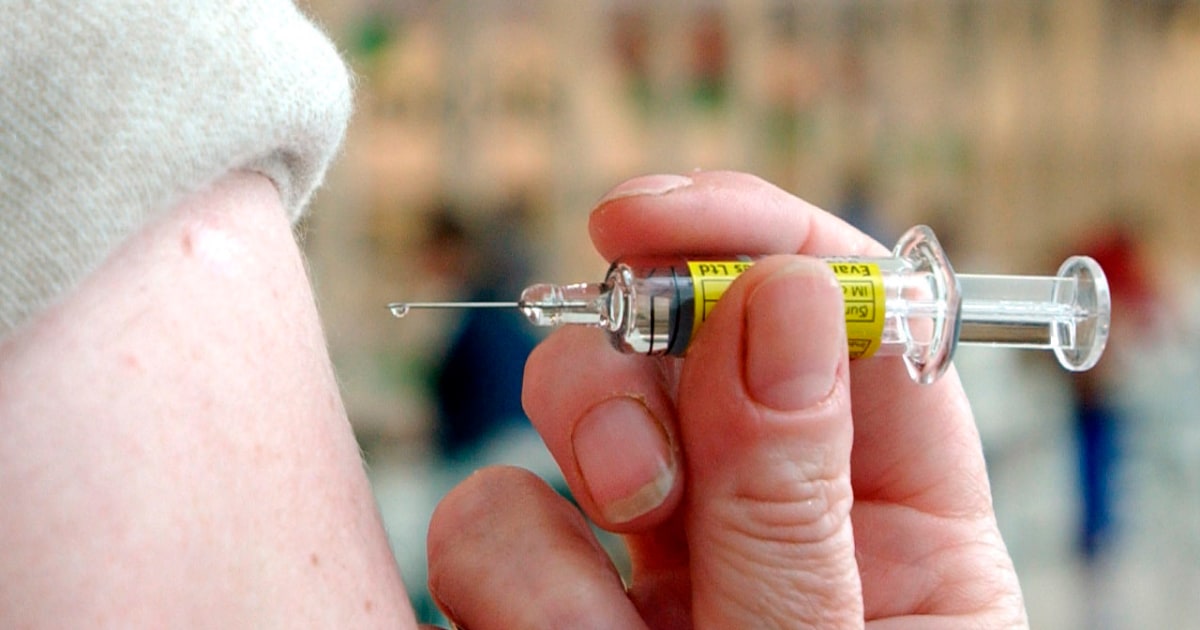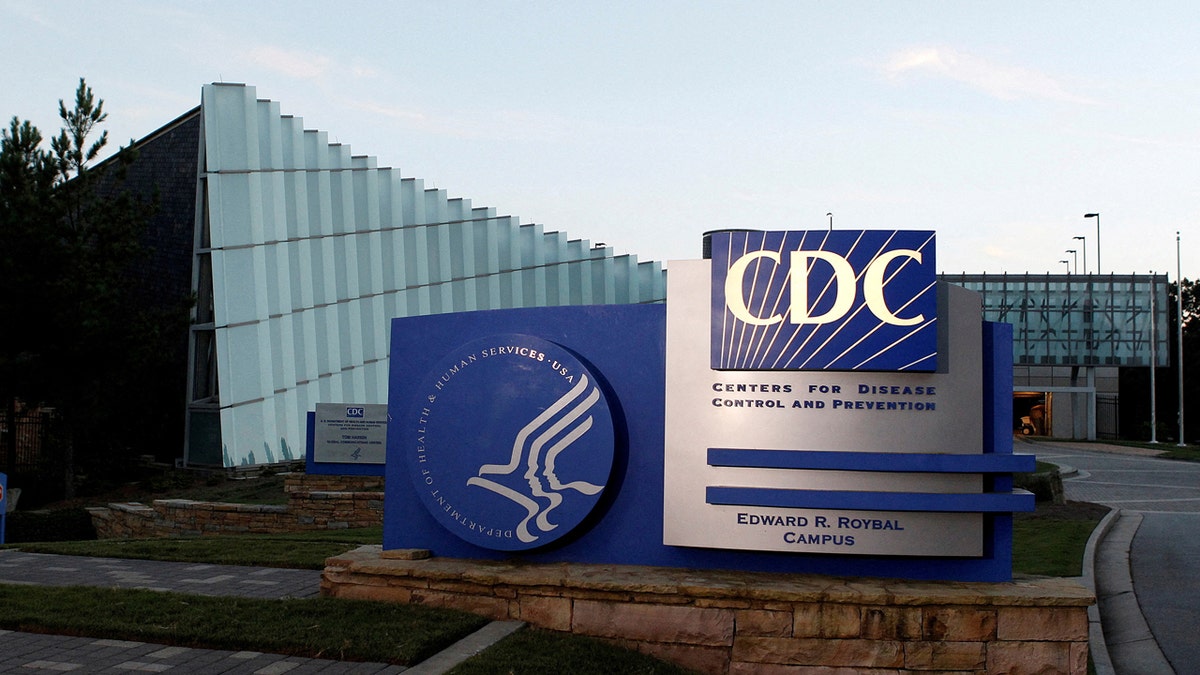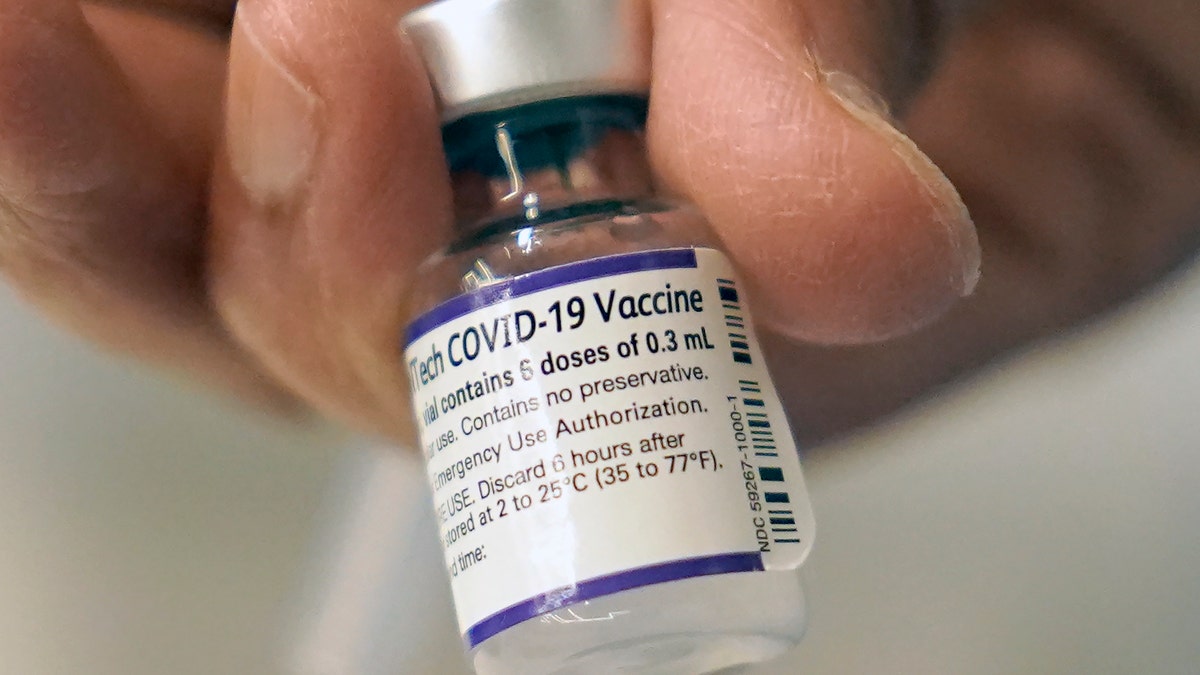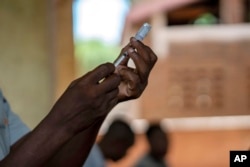On the day after Christmas 2021, Abigail Aguilar, 18, and nearly three months pregnant, walked into her mother’s bedroom and in a flat, emotionless voice announced, “Mom, I’m going to slit my throat.”
For weeks Quintina Sims had grappled with her daughter’s increasingly bizarre and frightening behavior. Aguilar had also been plagued by unremitting nausea, splitting headaches and weakness so severe her stepfather sometimes had to carry her to the bathroom. Doctors had largely brushed off her symptoms as the normal manifestations of early pregnancy.
Aguilar’s threat triggered a cascade of events that would end in a hospital 130 miles south of her Kern County, Calif., home where doctors mobilized in an effort to discover what was making the previously healthy teenager so sick.
After treatment after treatment failed, Sims, now 42, would be called upon to make what she called “the hardest decision of my life” — one that appears to have saved her daughter.
Aguilar, who will turn 21 in a few weeks, is now working full time as a preschool teacher’s assistant and studying child development at a community college. She remembers very little of her harrowing six-week stay at Loma Linda University Medical Center, but says the months she spent recovering proved to be clarifying.
“It made me realize that I had to value my life a lot more,” Aguilar said. “And I learned that my family was always going to be there for me.”
In the fall of 2021, Aguilar, a recent high school graduate, was living with her grandparents in Los Angeles, working in a movie theater and going to college part time.
In October, she discovered she was pregnant; the baby was due in July 2022. “It was a surprise,” she recalled. Aguilar, who was unmarried, struggled with what to do. She decided to have the baby, a decision her mother supported. “At first everything was fine,” Aguilar said.
But what began as normal morning sickness quickly morphed into near-constant vomiting accompanied by severe headaches. Aguilar’s older brother, who lived nearby, took her to an emergency room several times. She was diagnosed with migraines and hyperemesis gravidarum, a pregnancy-related condition that causes severe vomiting. Doctors gave her headache medicine and fluids. Aguilar lost about 10 pounds in a matter of weeks and suffered from headaches so piercing she sometimes wore sunglasses indoors.
Doctors, however, “didn’t see anything of concern,” said her mother, a graphic designer. “I was very concerned. Abby was constantly calling me and she looked different.” At times “she seemed really out of it.”
By mid-November Aguilar felt so ill that she moved back to her parents’ home and began seeing a new obstetrician. Her mother, who accompanied her to appointments, said the new doctor also attributed Aguilar’s worsening condition to her pregnancy and did not seem worried.
On Dec. 14, after Aguilar complained of a stiff neck, her mother called her health insurer’s emergency line. A doctor advised her to take her daughter to an ER immediately, in case she had meningitis, swelling that affects the brain and spinal cord and requires immediate treatment.
At one point “she was looking at me with a blank look and said, ‘I died, I know I died,’”
— Quintina Sims
“We waited 4 or 5 hours, and they did an ultrasound and blood tests and said ‘Yeah, it just has to be part of the pregnancy,’” Sims recalled. Doctors prescribed muscle relaxants and steroids and sent the pair home.
Nearly 10 weeks pregnant, Aguilar had suddenly developed severe insomnia; she slept in 30-minute snatches, a total of about three hours per night. Her personality had changed dramatically. Sometimes she was “very bland,” Sims said, while the next day she seemed deeply depressed and couldn’t stop crying.
“We kept a really close eye on her,” said Sims, who took her daughter back to the ER for the insomnia and depression, their second trip that week. Doctors tested Aguilar for a urinary tract infection and, finding none, predicted her condition would improve as the pregnancy progressed.
But on Christmas Day, Aguilar seemed worse. She stared at her gifts, apparently unable to comprehend what they were. At one point “she was looking at me with a blank look and said, ‘I died, I know I died,’” Sims recalled. Her family again carted her off to the ER, where a doctor gave her a sedative. He told Sims that her daughter might be displaying signs of “pregnancy psychosis,” which would be extremely unusual in someone like Aguilar who had no prior mental health diagnosis.
‘Not a mental health issue’
The following day, after Aguilar announced her intention to cut her throat, Sims called police for help. When Aguilar told an officer she planned to use a kitchen knife, police transported her to a mental health clinic. “She seemed normal when we got there and refused to sign herself in,” Sims said.
But in a moment that proved to be both pivotal and prophetic, a nurse pulled Sims and her husband aside. “She said, ‘This is not a mental health issue,” Sims recalled. “You need to take her to Loma Linda right now.’”
Sims didn’t ask questions. “For us, hearing that was a validation,” she said. The couple bundled their four children into the car and began making the two-hour drive south to Loma Linda, one of the teaching hospitals nearest their home.
Worried that Aguilar might try to jump out of the moving car, her older brother sat beside her in the back seat as the family sang and played Disney songs, hoping to distract her. They arrived at the hospital shortly after midnight.
In the ER, Aguilar quickly became agitated and psychotic. She pulled a woman’s hair, tried to take her clothes off and run out the door, and kicked a nurse taking her vital signs. She was admitted and placed on a 72-hour involuntary psychiatric hold as doctors sought to determine what was wrong.
One possibility, a psychiatrist told Sims, was schizophrenia, a serious mental illness characterized by delusions and hallucinations. Aguilar was hallucinating and alternating between periods of gibberish — repeating the names and addresses of family members over and over — and catatonia, which is characterized by unusual physical movements and long periods of not speaking.
“It was the hardest decision of my life. I spoke with my husband, her siblings, my dad, my mom, and I had a conversation with God about it.”
— Quintina Sims
Doctors soon suspected that a mental illness was not the underlying cause. Aguilar’s headaches, stiff neck and catatonia were suggestive of a neurological problem, said Travis Losey, chair of neurology and one of the doctors involved in her care. A physical exam found that her reflexes were abnormal, as was an electroencephalogram (EEG), which measures electrical activity in the brain. The focus shifted to an infection, a brain tumor or epilepsy.
An MRI revealed no sign of a tumor or other abnormality, and testing found no sign of epilepsy. Aguilar’s abnormal spinal tap pointed to the possibility of a rare, life-threatening disease called anti-NMDA receptor encephalitis. The illness, discovered in 2007, disrupts signaling in the brain and can be triggered by an infection or an autoimmune reaction in which the body attacks itself. It often strikes teenage girls and young women and is estimated to affect 1 in 1.5 million people per year.
Confusion, personality changes and hallucinations are common in the first weeks of the illness, which can be mistaken for schizophrenia. In later stages, seizures, sometimes prolonged, can occur. Without treatment, coma, permanent brain damage or death may result.
Doctors sent samples of Aguilar’s blood and spinal fluid to the Mayo Clinic. Two weeks later they learned that telltale antibodies had been found in her spinal fluid, confirming the encephalitis diagnosis.
But Aguilar’s pregnancy raised fraught and difficult questions about her treatment for which there was virtually no guidance. Fewer than 35 cases of the new disease had been reported in pregnant women worldwide, and safety questions about the potentially toxic effects on a fetus of the drugs used to treat it remain unresolved. Doctors from several departments including obstetrics and gynecology and medical ethics had joined the team caring for her.
After the first-line treatment — intravenous steroids — failed doctors began infusions of rituximab, a monoclonal antibody sometimes used to treat certain cancers and serious autoimmune diseases, a drug Losey called “the big gun.” Because of its possible hazards to a developing fetus, patients are warned not to take it if they are or may become pregnant.
Meanwhile doctors also began searching for a usually benign ovarian tumor called a teratoma that can cause encephalitis.
In late January, a doctor removed a teratoma and a walnut-sized cyst on Aguilar’s left ovary.
But to the dismay of her medical team, neither the rituximab infusions nor the tumor removal made any difference. Aguilar was getting worse, not better. She did not know why she was in the hospital, did not remember she was pregnant and described seeing ghosts in her hospital room.
Her doctors, who had consulted the hospital’s lawyers, broached a difficult subject with Sims. They had run out of treatment options and advised Sims that ending the pregnancy might be the best chance to save her daughter’s life. It seemed unlikely that both she and her baby would survive.
In some cases they told her, pregnancy might exacerbate anti-NMDA receptor encephalitis, possibly as a result of hormonal changes. The longer Aguilar remained ill, the greater the risk to her life. And because doctors had found her to be incapable of making a decision about a therapeutic abortion, it would fall to her mother to make it for her.
“The goal is, ‘What would the patient decide if the patient were able to make the decision?’” Losey said. “In this case, the family had a very clear understanding of what their role was.”
Sims said that doctors reviewed with her the results of the few published studies. A 2020 report of 11 pregnancies found that most babies born to mothers with anti-NMDA receptor encephalitis appeared to be healthy at birth, although 55 percent were premature. There were no deaths. The authors also analyzed 21 other cases reported between 2010 and 2019; two mothers died of septic shock, two had miscarriages and two had abortions. Of 16 births, nine were premature and one baby died shortly after birth.
“I knew this decision was going to have to be mine,” Sims said. “I had to choose between [Abby] and the baby, who might not have a mother.”
“It was the hardest decision of my life,” added Sims, who had suffered a miscarriage in her 20s. “I spoke with my husband, her siblings, my dad, my mom, and I had a conversation with God about it. Everyone told me the same answer: It’s okay to choose Abby.”
Aguilar, then about 17 weeks pregnant, underwent a surgical abortion Feb. 7. Her family and her doctors waited anxiously to see what would happen.
The morning after the procedure Sims walked into her daughter’s hospital room and was stunned by what she saw. “Abby was walking out of the bathroom by herself, and she was able to write her name legibly,” Sims recalled, actions that would have been impossible a day or two earlier. “I just started crying.”
Aguilar was discharged Feb. 12. Her recovery took several months as her symptoms receded and she was weaned off a variety of medications. The enormity of what she had been through, coupled with temporary physical changes caused by the steroids and other drugs and the loss of her pregnancy, were wrenching.
“All my friends were having babies,” she said. “I think I felt a lot of self-hate and self-pity, like why did this happen to me? But at the end of the day, you don’t choose what happens to you.” She decided to return to school, get a job and focus on her future.
In December 2022, there was an unexpected development: Aguilar was pregnant again, much to her surprise. She opted to continue the pregnancy.
“I wasn’t angry or sad,” her mother said. “I was scared.”
Because there was a chance she could relapse, Aguilar was closely monitored by a neurologist and two obstetricians, one a high-risk specialist. “This pregnancy was so smooth,” observed Sims, who said her daughter experienced no complications. “I was nervous the whole time. I was constantly texting her and at doctors’ appointments with her.”
Sims was in the delivery room when her first grandchild, a girl, was born “perfectly healthy” in August 2023. The baby, Sims said, “is a little reminder that I did what I needed to do.”
Aguilar agrees. “Now that I have my own daughter,” she said, “I would do the exact same thing.”
Submit your solved medical mystery to sandra.boodman@washpost.com. No unsolved cases, please. Read previous mysteries at wapo.st/medicalmysteries.
Adblock test (Why?)
Health - Latest - Google News
January 20, 2024 at 09:15PM
https://ift.tt/W8zKwpr
Hallucinations, headaches, bizarre behavior shadow a teen’s pregnancy - The Washington Post
Health - Latest - Google News
https://ift.tt/bjCm41s













